The Federal Court ruled in favour of internet service provider TekSavvy in a judgment released yesterday, overturning a decision to grant a Norwich order that would see the names and addresses of copyright infringers handed over to copyright claimants.
Justice Pentney ruled that the Case Management Judge (CMJ) had made a palpable and overriding error in granting the Norwich Order. In light of last year’s Rogers Communications decision at the SCC, better evidence is required to grant the order within the new “notice and notice regime”. The new regime was implemented by the Copyright Modernization Act in 2012, and the legal system is suffering “growing pains” figuring out how this system works in practice.
The “notice and notice” regime requires that in cases of alleged internet copyright infringement, the copyright claimant must send a notice to the Internet Service Provider (ISP) which holds the alleged infringer’s personal information. The ISP is then obligated to forward the notice on to the customer. The plaintiff in this case, ME2 Productions, has a policy of sending out a first notice to ask the internet user to remove the copyrighted content from their computer. If the user does not comply within a week, ME2 would send out a second notice, adding that they reserve the right to take legal action against the infringer.
One of the problems with this case is that there were multiple customers that, for one reason or another, never received one or both of the copyright notices. The Norwich order that was originally granted by the CMJ would have allowed ME2 to access the names and addresses of those internet customers that allegedly downloaded copyrighted materials. ME2 could then begin legal proceedings against those individuals. That would surely be a shock for those customers that did not receive notice to find themselves in the middle of a lawsuit.
This issue strikes at the heart of the tension between the rights of individual internet users and copyright claimants. Although intellectual property rights are important, individual privacy must also be considered before giving over personal information to copyright claimants.
In this week’s decision, there was much discussion about the legislative purpose of the new “notice and notice” scheme. Justice Pentney narrowed it down to deterring online copyright infringements, and balancing the interests of parties: “When Parliament adopted the notice and notice regime, it sought to balance the interests of copyright owners, individual subscribers, and Internet intermediaries such as ISPs”.
Obviously it is in the interest of internet users to maintain their rights to privacy, and to maintain the presumption of innocence. Justice Puntney compares Canada’s “notice and notice” regime with the United States’ “notice and takedown” system. There, once a copyright notice has been sent to an ISP, the ISP must take down or block allegedly infringing material. Parliament rejected this method, favouring a system that alerts copyright infringers before they find themselves in the middle of a lawsuit. This adds another layer to the balance of interests that the law aims to achieve.
As far as privacy goes, it would concerning to have lax rules around attaining internet users’ personal information. For these reasons, the Court sets out the steps for copyright claimants to receive a Norwich order. The first step is to establish a bona fide case of copyright infringement against an internet user. Although the standard of establishing a bona fide case of infringement is a low bar, Justice Puntney emphasizes that the “public interest in favour of disclosure must outweigh the legitimate privacy interests”. Copyright claimants must put forward their best evidence of a copyright infringement, otherwise they have no right to access the personal information of internet users alleged to have done the infringement.
In this case, ME2 relied on a declaration made by a consultant who works for a software company as evidence that the copyright infringements in fact occurred. The software, used by ME2, automatically scans the internet looking for illegally downloaded copyrighted materials. The Court found that since the consultant who wrote the declaration could not be subject to cross-examination, this did not qualify as the “best evidence” needed to obtain access to internet users’ personal information.
Balancing privacy rights with property rights is a difficult job that requires due process, procedure and precision. As Justice Puntney put it, “[a]chieving that balance requires copyright owners to act with diligence in preparing their material and meeting the normal standards of evidence by way of affidavit”. Here, that did not happen; ME2 relied on a mere declaration and was sent home empty handed. The court did leave it open for ME2 to bring a new application with better evidence, so there is still a chance that TekSavvy will have to give over the identifying information. For now, the alleged copyright infringers remain anonymous.

